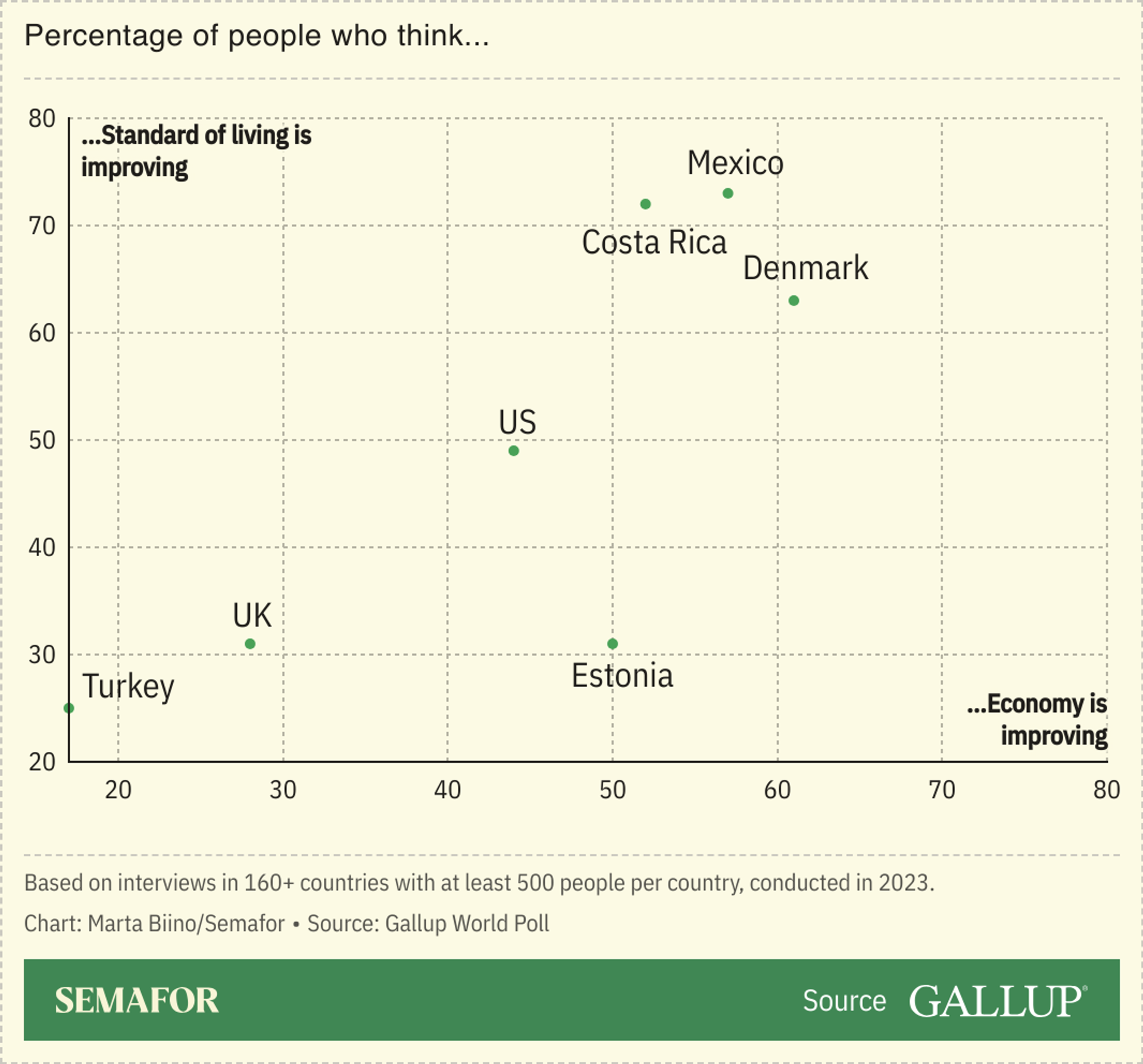The News
Britons are more pessimistic about their economic prospects and living standards than citizens of almost every other rich country — only slightly more upbeat than during the financial crisis of 2007-08 — research by Gallup found.
Nearly half of British people report living comfortably on their household income, above the average across the OECD, an international economic group with 38 member states. But just 23% felt hopeful about the future of the economy, a pessimism that could amplify the ruling Conservative Party’s expected electoral wipeout on Thursday after 14 years in power.

SIGNALS
Labour’s economic fixes appear ‘thinner than the rhetoric behind them’
A Labour win seems all but guaranteed in Thursday’s general election, but Chancellor of the Exchequer hopeful Rachel Reeves’ promise to lead the most “pro-growth, pro-business Treasury the country has ever seen” could underestimate how deep the sources of economic malaise runs, with Labour policy proposals appearing “thinner than the rhetoric behind them,” The Economist wrote. Ultimately, the party’s plan to balance the books through growth alone is unlikely to be enough to prevent a tax raise in the near future, the outlet added, echoing a warning from the Institute for Fiscal Studies in May. Confronting the UK’s stagnation requires “real boldness,” and Reeves’ “securonomics” might not be up to the task, an expert argued in The Conversation.
Austerity may have been ‘counterproductive’ for the UK economy
The Conservative Party were among the leading architects of austerity economics, cutting more than half a trillion pounds from public expenditure, according to the Progressive Economy Forum, a left-leaning think tank. In turn, the Conservatives failed to foresee just how “counterproductive” long-term austerity would prove to be, a commentator argued in leftist UK outlet, Tribune. Unlike some other European countries, Britain’s austerity was “almost entirely an unforced error,” driven by an ideological preference for small government, a columnist wrote in The Guardian. However, there’s little sign that a Labour win will reverse the damage, he added.
Brexit is the elephant in the room
Economists estimate that Brexit cut the UK’s GDP, a measure of economic activity, by about 2-3%. But leading politicians have largely avoided mentioning the EU in this campaign. There is widespread voter fatigue on the issue, and divisions run deep, The Guardian wrote. Yet it could prove too important to ignore: Investors are “shunning” Britain because of Brexit, which underestimated how dependent the City was on the European market, The Wall Street Journal’s former chief European commentator said. The silence could be broken after the election, as businesses frustrated with post-Brexit red tape “dare to be more vocal under a Labour government,” a UK think tank analyst told The Atlantic.

